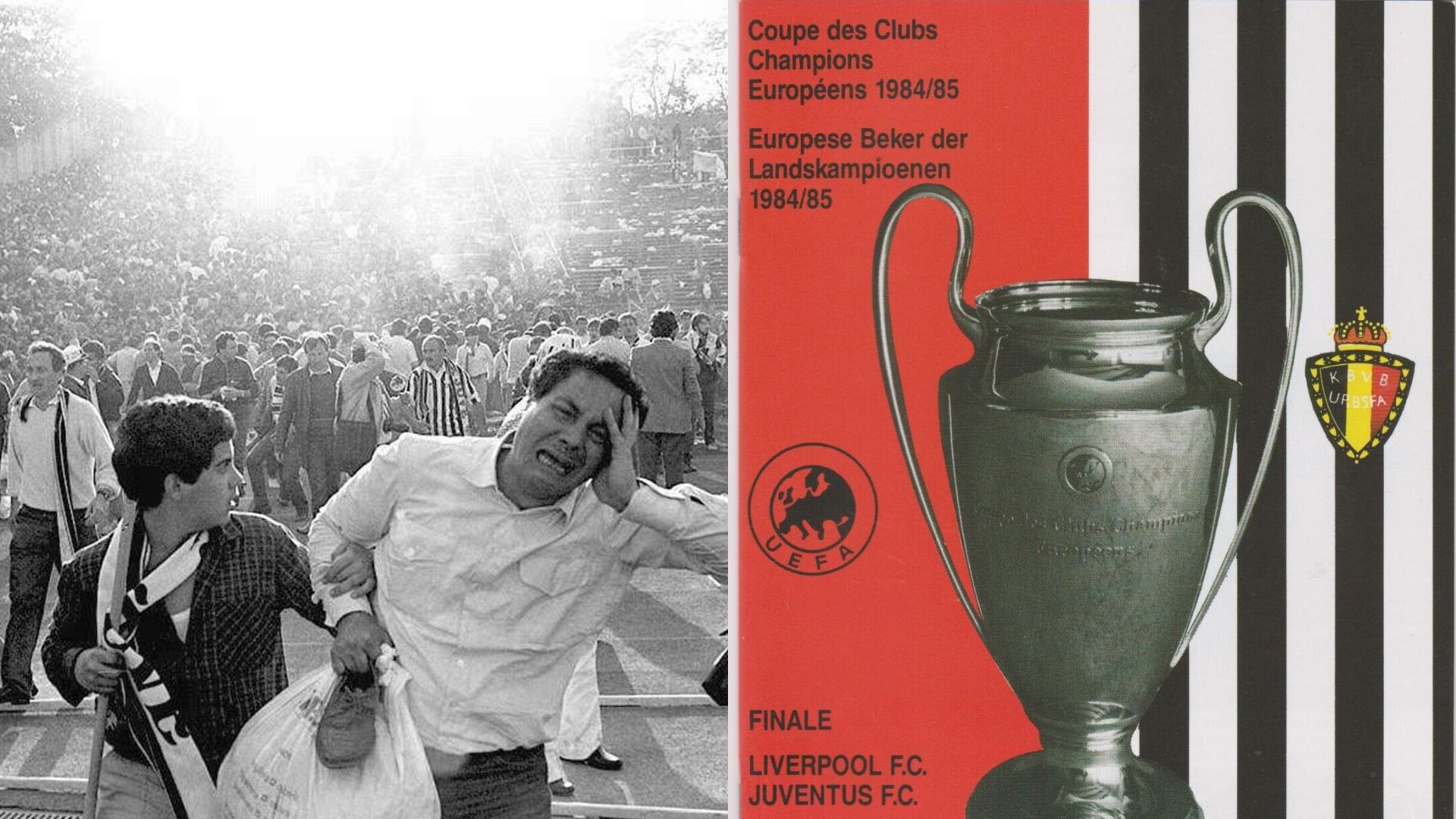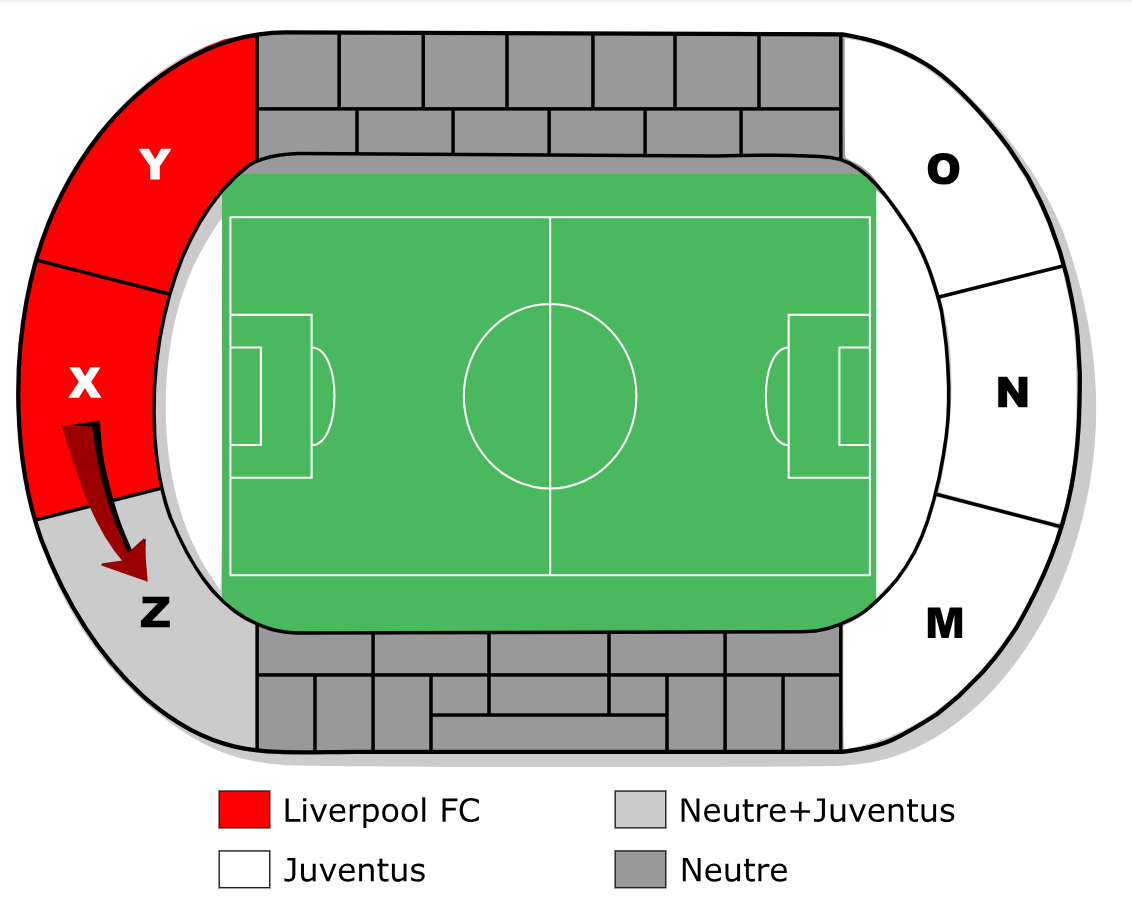This week, Liverpool FC are back in Brussels for only the second time since the deadly Heysel Stadium Disaster on 29 May 1985 – where 39 football fans were killed because of fan trouble caused by English supporters.
The six-time European champions are playing Union Saint-Gilloise on Thursday for the last game of the Europa League group stages, in what undoubtedly will be a historic night for the small Brussels-based team.
Yet Liverpool’s return to Brussels also brings up a sad chapter of football and Belgian history – one that was later described by UEFA Chief Executive Lars-Christer Olsson as "the darkest hour in the history of the UEFA competitions."
On the night of 29 May 1985, Brussels was the scene of one of the worst stadium disasters in Europe, just before the European Cup final (the old Champions League) between Liverpool and Juventus at Heysel Stadium.
In the 1980s, England had a longstanding hooliganism problem, and Heysel was to become a watershed moment for English (and also Belgian) football. So what happened?
At around 19:00, before the game, fans had been confronting each other, throwing bottles, flares and stones – but most of the trouble was coming from the Liverpool end. After growing tension, Liverpool hooligans stormed the neutral section which also had many Juventus supporters, quickly causing a panic among fans.
Many tried to escape the charging Liverpool fans. A crush ensued on the other side of the stand, which caused the wall to collapse, with many people underneath them.
Some died due to being crushed by the crowd, while others were killed by the collapsing wall. In total, 32 Italians, four Belgians, one French and one Northern Irish national were killed that night. Around 600 people were injured.
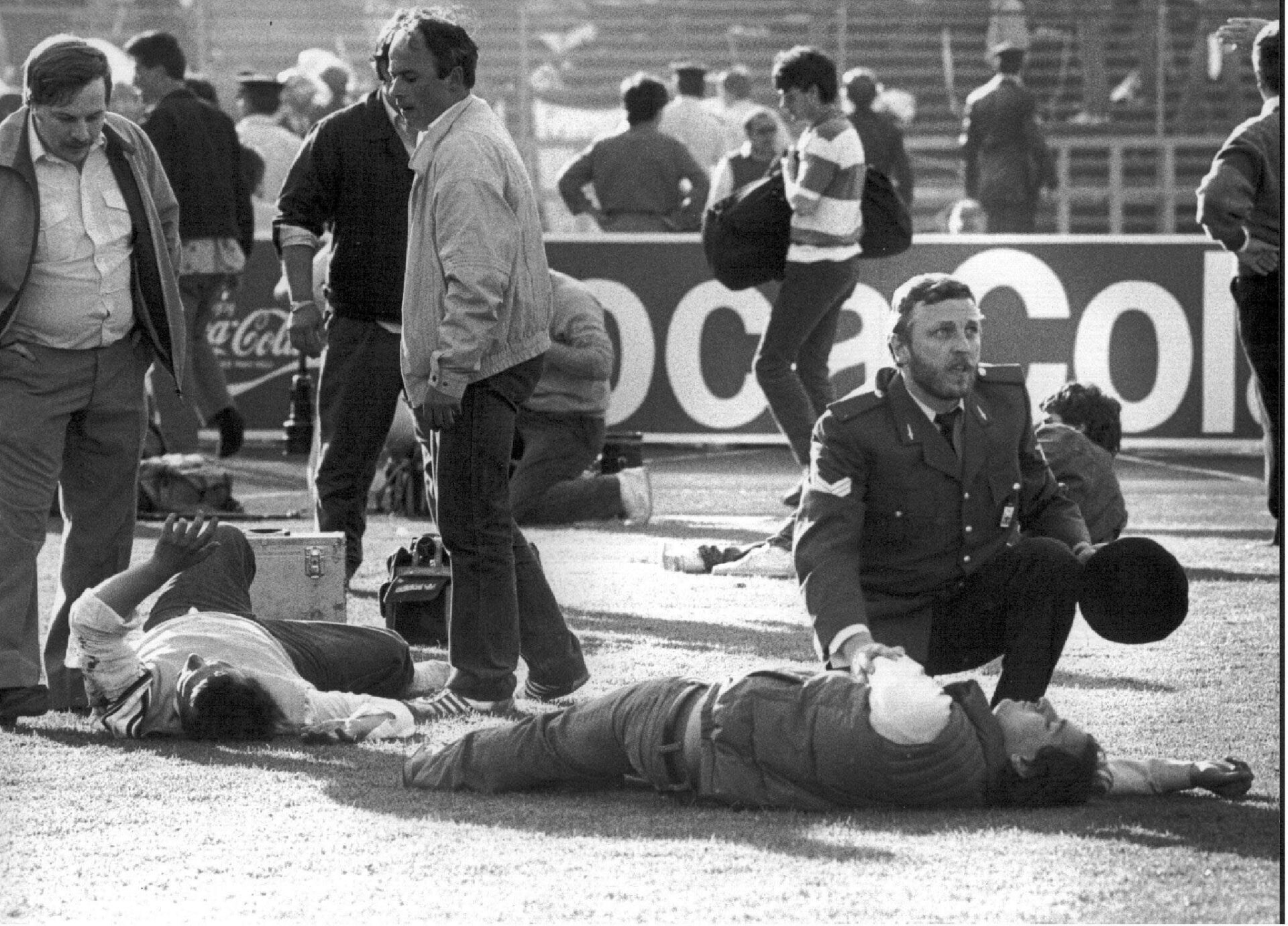
Many took refuge and were treated on the pitch after being crushed. Credit: Belga
Once they saw the scene at the other end, the Juventus section of the ground retaliated and charged down the pitch to help their compatriots.
Raging Juventus fans were blocked by police on the pitch and a two-hour confrontation ensued – later, one man was even arrested for firing a starting gun at the Belgian police during the clashes.
Shockingly, the game was played anyway, ignoring Juventus’ request to cancel it. Footballing associations, alongside the Belgian Government (who had declared a state of siege in Brussels), opted to go ahead with the game.
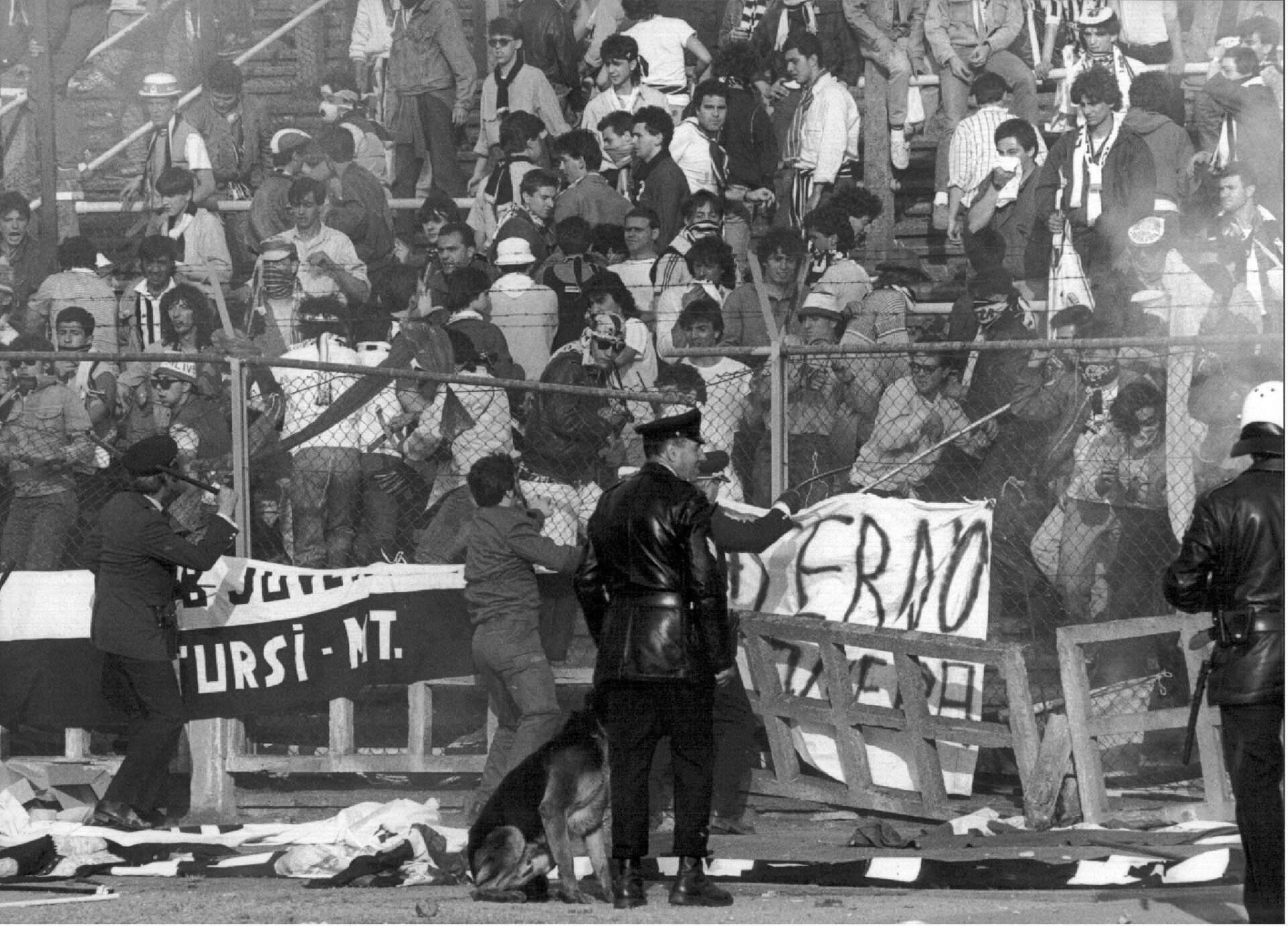
Juventus fans try to storm the pitch. Credit: Belga
Authorities feared that calling it off would result in more trouble. Juventus won the game 1-0 and were crowned European champions under tragic circumstances.
Many of the Juventus fans with Section Z tickets were from Belgium’s large Italian community, with many from Brussels, Liège and Charleroi.
After the trouble, 34 arrests were made back in Britain, but only 26 were later extradited to Belgium.
All of the English fans were held in the Prisons of Saint Gilles and Forest. A lesser-known fact is that in 1987, while fans waited for the trial, another riot occurred. This time, a mutiny of 200 inmates accused prison authorities of giving the Liverpool hooligans preferential accommodation and treatment.
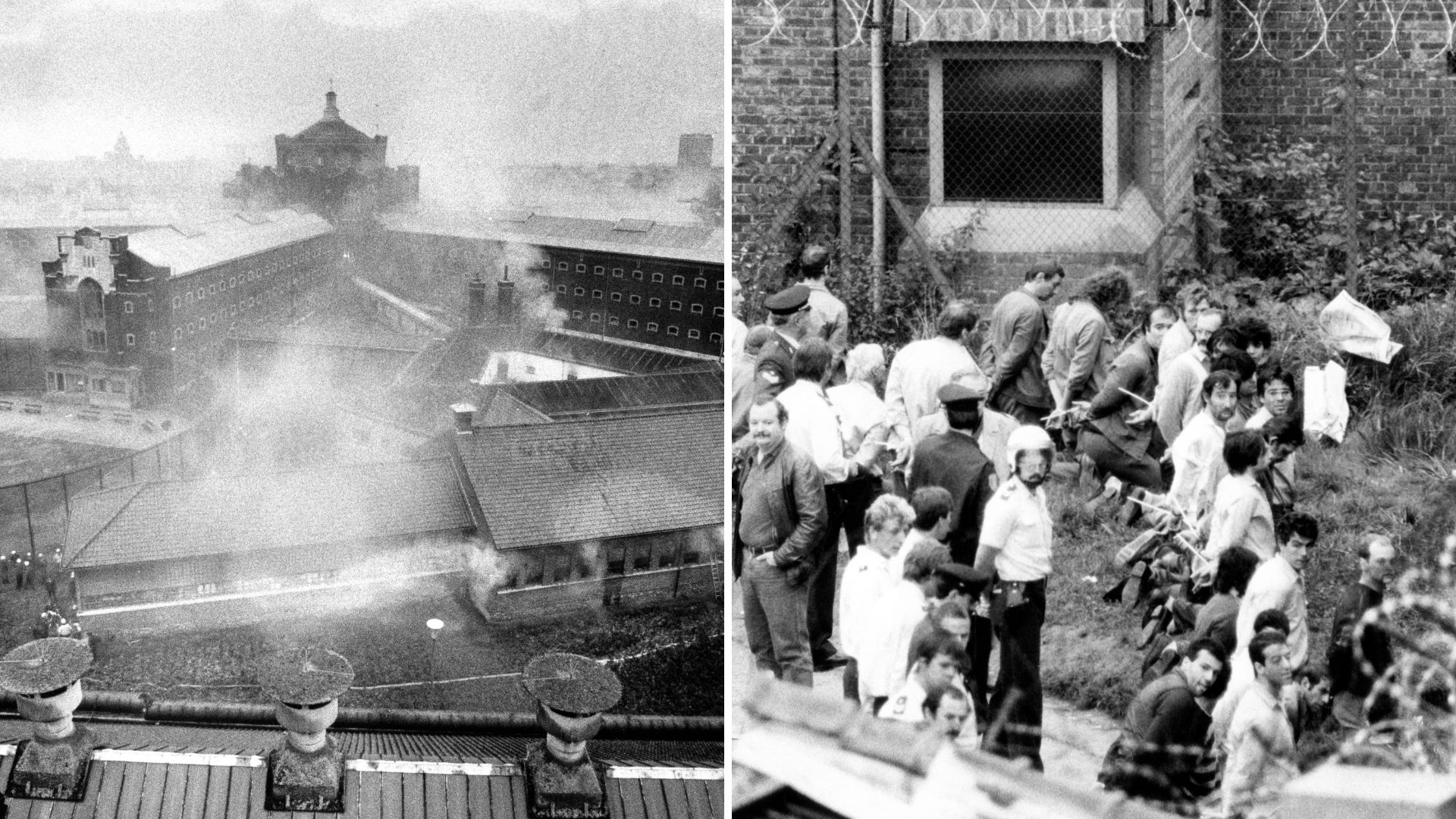
Smoke rises from the prison (left) and the detained inmates, September 1987. Credit: Belga
Eventually, the English fans were released by Belgian judges. Out of those convicted, 14 Liverpool fans were given three-year sentences for manslaughter, half of which were suspended.
Three Belgians were also charged: the head of the Belgian football association, as well as the two chiefs in charge of policing and crowd control on the night, which was largely seen as inadequate.
Heysel did not reopen until a decade later, in 1995, when it was completely rebuilt as the King Badouin Stadium.
Twenty years after the tragedy, Terry Wilson, a Liverpool fan who took part in the trouble at Heysel, told De Morgen in 2005: "I was stupid, young, arrogant and I wish I had never done it."

